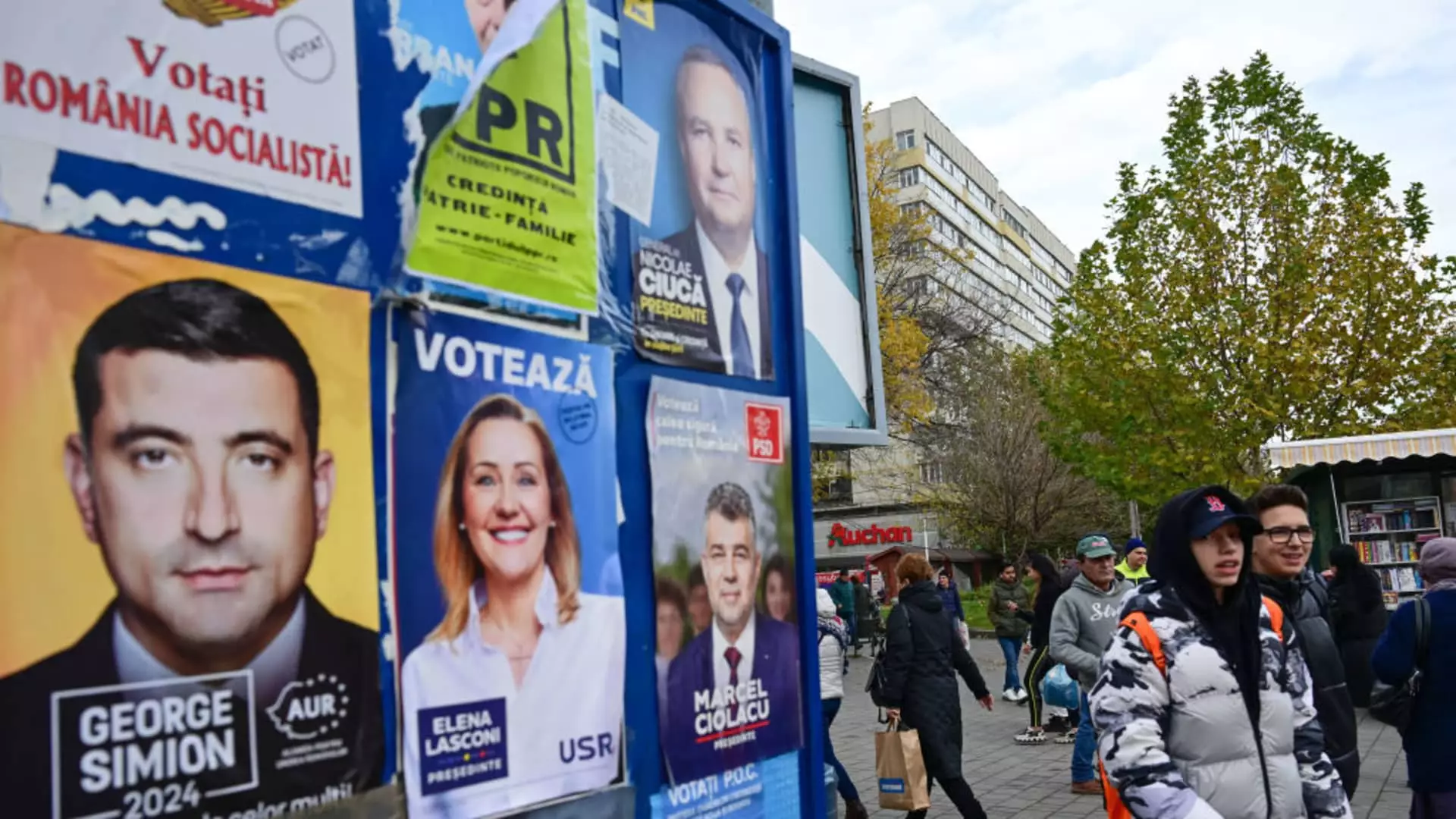In a shocking turn of events during Romania’s recent presidential election, independent candidate Calin Georgescu, representing far-right, pro-Russia sentiments, captured a significant 22.94% of the votes in the first round. This surprising outcome is particularly noteworthy given that pre-election polls had estimated his support to be far lower, perhaps in single digits. His unexpected lead indicates a shift in the Romanian electorate’s mood, reflecting rising nationalism and skepticism towards the West, particularly among segments of the population that may feel overlooked by mainstream political narratives.
The immediate ramifications of Georgescu’s performance are profound. His candidacy feeds into a broader trend seen across Europe, where far-right parties are gaining traction amidst concerns over immigration, security, and national sovereignty. Georgescu’s rhetoric, which includes notable opposition to military aid for Ukraine, resonates with a disillusioned voter base that may prioritize national allegiance over international cooperation.
Following Georgescu, Elena Lasconi, leader of the opposition Union Save Romania (USR), garnered 19.17% of the vote. As a pro-NATO candidate who advocates for military assistance to Ukraine and reforms aimed at combating corruption, her vision starkly contrasts with that of Georgescu. Notably, Lasconi’s pro-European Union stance positions her in opposition to the rising tide of nationalism represented by her rival. She remains a unique voice, having endorsed civil unions for same-sex couples while opposing same-sex marriage, thereby appealing to a broader demographic.
The anticipated runoff on December 8 will be crucial, as it encapsulates the ideological clash in Romania. Voter turnout at 52.55% reveals a populace engaged yet split, indicating that the upcoming election could be a referendum not just on candidates, but on the country’s strategic direction—whether to move towards isolationism or reaffirm its commitment to EU values and NATO alliances.
Another significant aspect of this election is the failure of the Social Democrat Party (PSD), led by prime minister Marcel Ciolacu, to secure a position in the runoff after obtaining just 19.16% of the votes. This marks a historical moment since it is the first time since 1989 that the PSD will not have a candidate in the presidential runoff, signaling a potential upheaval in Romania’s political structure. The PSD’s decline may reflect wider dissatisfaction with traditional parties and an electorate that is increasingly seeking alternatives outside the established political landscape.
Furthermore, populist nationalists led by George Simion of the Alliance for Uniting Romanians (AUR) garnered 13.87% of the votes. Their rise further signals a shift in voter preference towards populist ideals and rhetoric that thrives on nationalism and anti-establishment sentiments.
With many ballots still to be counted, the first round of Romania’s presidential elections has already highlighted a multifaceted and dynamic political scenario. As the nation heads toward the runoff, the stakes could not be higher. Romania stands at a crossroads, with Georgescu’s rise and Lasconi’s proactive approach presenting voters with two starkly different paths for the nation’s future. Whether this electoral cycle will solidify the emergence of far-right influence or restore faith in pro-European sentiments remains to be seen, but the implications for both Romania and the wider region will be profound.


Leave a Reply